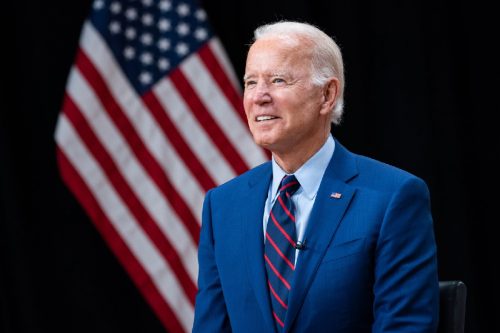
By Duncan Hill
President Joe Biden is supportive of attracting more STEM immigrants and H-1B remains one of the most obvious conduits for this. But H-1B also continues to suffer from poor publicity. So, what impact will President Biden have on Indian immigration to the United States?

The world is expecting big changes as Joe Biden took office as 46th President of the United States on January 20. Perhaps nowhere more so than in immigration policy where Biden has said he wants to restore “America’s values” and present a more welcoming environment to immigrants.
Top of his immigration to-do list has been the question of giving citizenship rights to millions of illegal immigrants, ending the so-called Muslim ban, and continuing the travel ban from countries with high rates of Covid-19.
While none of these issues affect Indians in particular, the way they are handled will have implications for other immigration issues that will significantly impact the lives of Indians hoping to move to America.
An Obama restoration?
Biden’s early staffing decisions indicate a return to the Obama era when he was Vice President. This will almost certainly be true in terms of the tone of his administration. We can expect a return to politeness in political discourse with greater respect for immigrants and the government agencies that process their applications.
Yet four years of Trump, coupled with the Covid pandemic, may have pushed America to a point of no return. The future will hinge upon how quickly the US economy — particularly employment and wage figures — can recover from Covid-19
Total control?
Biden’s party, the Democrats, won a surprise victory in both Georgia Senate seats in the run-off election on January 5, handing them control of a tied chamber thanks to Vice President Kamala Harris’s casting vote.
With control of two of the three branches of government, Biden and the Democrats are in a powerful position to pursue their agenda. But obstacles remain. For one thing, one branch of government, the judiciary is independent and not instinctively sympathetic. Immigration issues have a habit of winding their way to the Supreme Court, which is currently weighted in favor of conservative judges.
Within Congress itself, there could also be challenges. Individual senators have the power filibuster or to put a hold on legislation they oppose. And, what is more, Biden might not always be able to guarantee the support of every member of his own party – conservative Democrats may not be supportive of immigration reform that appears to be too liberal and liberal Democrats will be pressuring him to be more radical.
But Biden knows Congress well (he is one of the longest serving senators in American history). He knows he has to negotiate behind the scenes so that he brings acceptable legislation to the floor. This will mean negotiating with both left and right wings of his own party, as well as a Republican leadership that will still be struggling with the influence of Donald Trump. So, despite Democrat control, there is still going to be an element of compromise.
H-1B visa for highly skilled workers
Unlike EB-5, the H-1B visa is often perceived to have a negative impact on the US labor market. It was subject to growing restrictions even before President Trump came to office and had its heyday during the dotcom boom of the early 2000s.
Indians account for the vast majority of H-1B visas – with around three quarters of the total. This dwarfs every other country, so the recent crackdown on H-1B has been most keenly felt in India, especially the IT sector.
President Trump extended the suspension on H-1B visas until March 31, so Biden will need to decide whether to repeal this or let it lapse naturally in two months. Biden is supportive of attracting more STEM immigrants and H-1B is one of the most obvious conduits for this. But the visa continues to suffer from poor publicity at a time of rising unemployment. He may attempt to tie the two together making the annual availability of visas contingent upon domestic employment figures as well as market demand.
L-1 visa for managers & executives
The L-1 Intracompany Transfer visa was also temporarily suspended by President Trump last June and will reopen at the same time as the H-1B visa. The L-1 visa allows a US company to bring over a management or executive-level employee from an overseas arm of the same company.
It has been traditionally used by well-established multinational companies to move their employees to America. In India the L-1 is a popular route for the IT industry because it also allows for the transfer of employees with specialized knowledge under the L-1B route. Consequently, the L-1 visa is sometimes perceived to adversely affect the US workforce, but it has mostly avoided the same intense scrutiny as the H-1B visa.
What is less well known about the L-1 visa is that it can also be used by entrepreneurs to support the expansion of their businesses to the United States. An owner or a senior-level employee can move to the United States with their family to set-up and grow the new U.S. operation.
Optimism vs pragmatism
How Biden compromises in practice will likely depend upon how quickly and in what way the U.S. economy recovers from Covid. If unemployment remains stubbornly high for a long time and salaries remain depressed, he will be under pressure to make a show of protecting the American workforce. Political coalitions will fray if the recovery is unevenly felt.
During the campaign, Biden has attempted to reconcile his idealism to a pragmatic approach. His immigration manifesto is bursting with progressive ideals, but also calls for “mechanisms to temporarily reduce the number of (employment-based immigrant) visas during times of high U.S. unemployment.”
So, while there is an opportunity for Biden to pursue ambitious immigration reform, the road to get there is not as smooth as it first appears. This will have an impact on visa categories favored by Indians.
The future
Immigration is a notoriously complex issue for US governments. Time and again presidents have attempted to introduce reform one way or the other, but the needle has barely moved. Even control of Congress is no guarantee of success. With the inevitable pressure on the economy and jobs, the visa categories that may emerge the strongest are the ones that can make the clearest claim to bringing jobs and investment to a post-Covid America.
(Duncan Hill is marketing director at US immigration law firm Davies & Associates. He has also previously worked as a legislative fellow in the United States Senate.)



